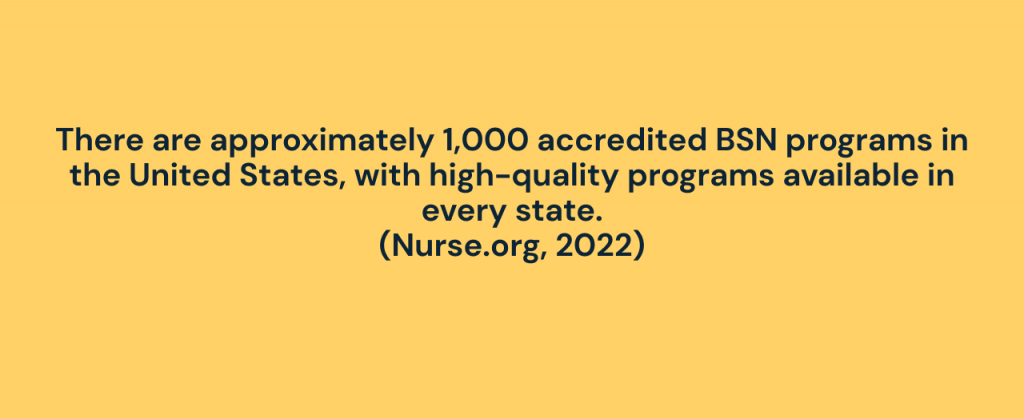Nursing school is an essential stepping stone on the path to a fulfilling and rewarding career in the healthcare field. It provides a nursing student with the information, skills, the best nursing student memes, and compassion required to deliver outstanding patient care. However, it’s completely natural to feel scared and stressed when embarking on this educational journey. The good news is that you can conquer your concerns even if you are still trying to figure out why nursing is hard, and excel in nursing school if you have the proper attitude and methods, like professional nursing research paper tips. Get ready to receive practical advice and inspirational guidance to help you meet the challenges of nursing school and ultimately succeed.
What is a Nursing School Like?
Nursing school entails an intensive educational program designed to train young minds in becoming registered nurses (RNs) or licensed practical nurses (LPNs). It typically involves a combination of classroom lectures, hands-on laboratory work, the requirement to pass the NCLEX exam, and clinical rotations in various healthcare settings. The curriculum covers a diverse range of subjects including topics for anatomy essay, physiology, pharmacology, nursing theory, patient care skills, and specialized areas like pediatrics, obstetrics, and mental health nursing.
Nursing schools can be both academically and emotionally challenging. Students face heavy workloads and must effectively manage their time to keep up with coursework, clinical responsibilities, and exams. Successful navigation of the program requires a dedication to studying and the maintenance of an organized approach.
Clinical rotations are a vital component of nursing school, allowing students to gain practical experience in different healthcare environments under the guidance of clinical instructors and registered nurses. These rotations provide an opportunity to apply theoretical knowledge and skills in real-world patient care situations, which can be simultaneously exhilarating and demanding.
In addition to the academic and clinical aspects, nursing school emphasizes the development of critical thinking, effective communication, and problem-solving skills. These proficiencies are essential for delivering safe and efficient patient care.

How to Pass Nursing School: Initial Steps to Take
With proper mental preparation, thorough research, and sufficient time management and self-organization, you can set yourself up for success and pursue a career in nursing.
Building a positive mindset
Entering nursing school might be intimidating, but confronting your anxieties and adopting an upbeat frame of mind can help you overcome the obstacles that await you. Here’s what you can do:
- Acknowledge your fears. Recognize and confront your fears about starting nursing school. It’s normal to feel anxious, but remember that you are capable of overcoming obstacles.
- Find motivation. Reflect on your passion to study nursing and the difference you want to make in people’s lives. Use this motivation to fuel your studies and drive your success.
- Set realistic goals. Studying for a nursing degree demands commitment and hard work. Set achievable goals for yourself, both academically and personally, to stay focused and motivated.
- Surround yourself with positivity. Your friends, family, and fellow nursing students are the right place to look for support. Being surrounded by faith and encouragement can help you maintain your enthusiasm throughout your nursing school experience.
Research and planning
You have to do thorough research and plan things out to grasp the requirements, available resources, and curriculum of the given nursing school. Consider the following:
- Know the requirements. Explore and familiarize yourself with the prerequisites and entrance tests for admission to the nursing school. Gather the necessary information from reliable sources such as the American Association of Colleges of Nursing (AACN) and the official website of the college you plan to attend.
- Explore resources and scholarships. Utilize platforms, like NurseJournal.org, for instance, to analyze the scholarships, grants, and financial aid options designed specifically for nursing students. Use these possibilities to reduce the price tag of nursing school.
- Seek guidance. Reach out to current nursing students or professionals in the field for advice and insights. They can provide valuable information about what to expect and how to best prepare for nursing school. Reading some well-written expert created nursing essays is always a good idea, as it helps you get used to the academic writing requirements.
- Understand the nursing program. Familiarize yourself with the courses you’ll be taking and the order in which they are offered. This will help you plan your study schedule effectively.
Time management and organization: Tips for nursing school
How to succeed in nursing school? Mastering time management and striking a balance between your nursing studies and personal life will be invaluable skills to cultivate! Consider the following tips:
- Make a study plan. Create a study schedule that is tailored to your own learning style and interests. Set aside time for learning, taking classes, and doing homework.
- Break it down. Separate your study time into small parts. Concentrate on one topic or issue at a time, taking short breaks to rest and recharge your batteries.
- Utilize productivity tools. Take advantage of study apps to stay organized. They will assist you in utilizing your time effectively and enhancing your learning speed and comprehension.
- Set priorities and boundaries. Choose your priorities and arrange your time appropriately. You should clearly understand your responsibilities as a student and focus on what is most important to you at the moment — your nursing school test.
By mentally preparing yourself, conducting thorough research, and effectively managing your time, you can lay a strong foundation for success in nursing school.
Navigating Key Milestones in Nursing School
To embark on your journey as a nursing student, it is crucial to pass the entrance exams. A great starting point is learning how to prepare for nursing school entrance exam. These exams play a vital role in determining your admission to a nursing program. To ensure that your preparation is effective and increase your chances of success, consider following these steps:
| Preparation |
|
| Gathering the necessary documentation |
|
| Seeking guidance and support |
|
How to be successful in nursing school? Remember to stay positive, remain dedicated to your goals, and believe in your ability to overcome any challenges that come your way.
Nursing essays
Writing essays and conducting research projects are important aspects of nursing school. Students can use these tasks to demonstrate their mastery of nursing-related ideas, critical thinking abilities, and good communication skills.
Here are some practical tips to help you succeed in your nursing essays and research projects:
- Understand the expectations and requirements of nursing essay topics.
- Conduct effective research using credible sources.
- Take organized notes to keep track of important information.
- Create an outline with clear sections: introduction, body paragraphs, and conclusion.
- Use simple yet precise language in your writing.
- Support your arguments with evidence from research findings or case studies.
- Utilize essay writing tools, such as the thesis statement generator and bibliography generator.
- Proofread and revise your essay for grammar and spelling errors.

Nursing school examinations: Mastering midterms and finals
How hard is nursing school? Midterms and finals can be challenging for nursing students, as they represent critical milestones in their academic journey. These nursing exams are designed to assess your understanding of the complex and diverse knowledge required in the nursing field. While the nursing program may seem daunting, approaching midterms and finals with the right mindset and effective strategies can help you navigate them successfully.
To excel in these examinations, it’s essential to start preparing well in advance. Begin by reviewing and consolidating your course materials, lecture notes, and textbooks. Utilizing study groups and review sessions can also be particularly helpful. Collaborating with your fellow students allows for a shared understanding of challenging concepts and fosters a supportive learning environment. Explaining and discussing complex topics with others helps solidify your understanding while gaining different perspectives.
Attending review sessions organized by professors or teaching assistants can provide additional clarification and insight into the content of the nursing school exam.
How to pass nursing school exams? Managing test anxiety is crucial during midterms and finals. It’s natural to feel some level of stress, but excessive anxiety can hinder your performance. Practice stress-reduction tactics such as deep breathing exercises, meditation, and relaxing activities. Make self-care a priority by getting sufficient sleep, eating good meals, and leading a balanced lifestyle.
Using constructive criticism and visualization exercises can also help you feel more confident and less anxious. Remind yourself of your studying strategy and the effort you’ve put into your studies, and envision success during the nursing school exam.
Lastly, remember that success in completing midterms and finals is not solely determined by a single nursing exam but rather by your overall performance and growth throughout the semester. Learn from each assessment, whether you excel or encounter challenges, and use them as opportunities for improvement. Don’t hesitate to ask for feedback from your professors to pinpoint areas where you can improve and continuously enhance your study strategies.
With diligent preparation, effective time management, and a calm mindset, you can approach midterms and finals with confidence and achieve the results you desire – get into nursing.

Balancing Personal Life and Academics: Nursing Student Stories
“I never thought it would be easy, but I knew I had to pursue my dream of becoming a nurse. As an adult nursing student working in retail and being a mom to my son, finding the right balance was crucial for me. I had to juggle my academic responsibilities with family commitments,” says Cristel Roberts. “Here are my nursing student tips: To cope with the challenges, I focused on effective time management. I created a detailed study plan that allowed me to dedicate specific time to my coursework while ensuring that I could spend quality time with my son. I also reached out to my family and friends, seeking their support when needed. Their encouragement and understanding played a significant role in my success.”
Similarly, Jean Chavez, who works in a hospital and is a father to his daughter, shares his experience: “Balancing nursing school and family responsibilities has been a rewarding but demanding journey. I quickly realized that setting clear boundaries was essential. I learned to prioritize my time and energy by establishing dedicated study periods where I could solely focus on my coursework. This way, I can be fully present for my family when I am with them. Additionally, I strongly believe in the power of self-care. Taking time for activities I enjoy and spending quality moments with my daughter help me rejuvenate myself and maintain a healthy work-life balance.”
The stories of Cristel and Jean demonstrate that with determination, effective time management, communication, and self-care, nursing students can successfully balance their personal and academic lives. Their experiences serve as an inspiration to others, showing that it is possible to pursue a nursing education while fulfilling family responsibilities.
How to prepare for nursing? By implementing personalized strategies and seeking support from loved ones, a nursing student can thrive academically and personally. Just as preparation is crucial in nursing, awareness and proactive planning are equally essential in ensuring safe learning environments, as discussed in this school safety in America essay, which emphasize the importance of mental well-being, emergency readiness, and community support in educational settings.





